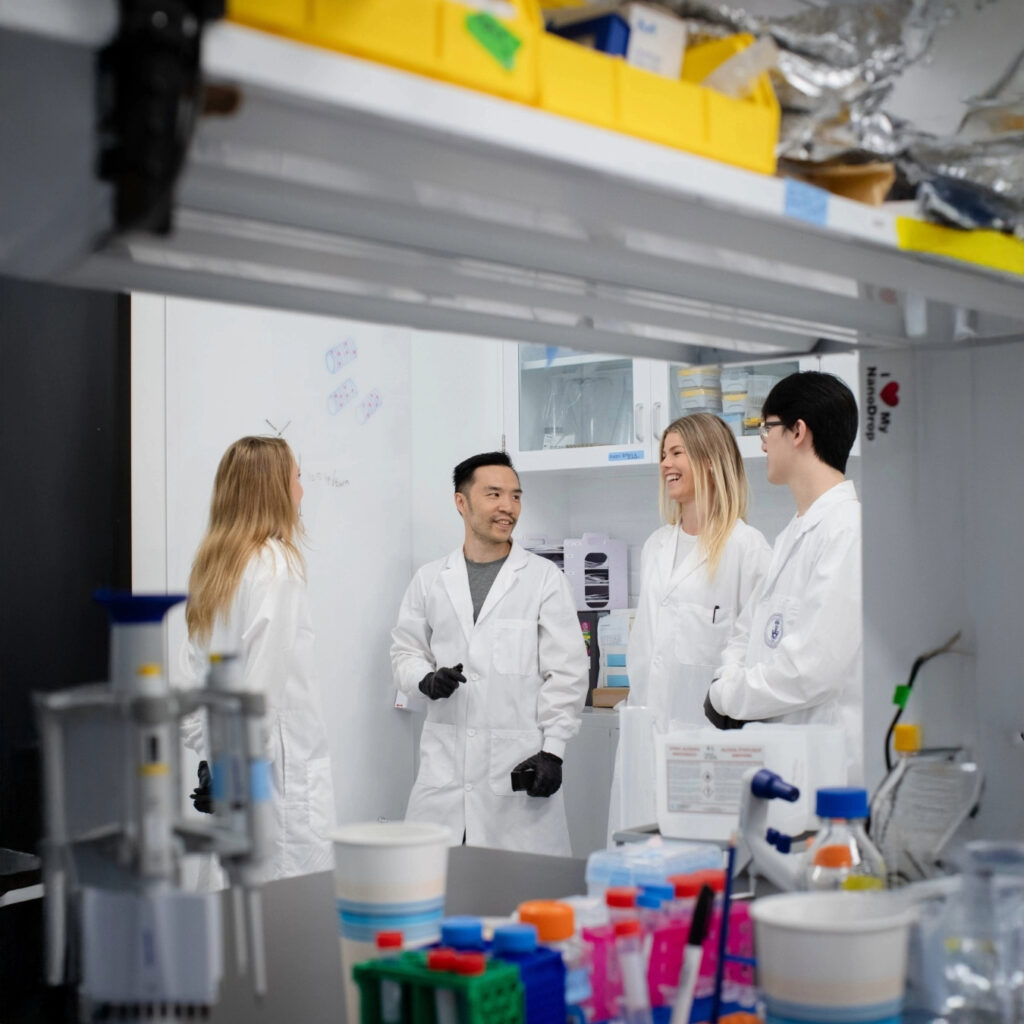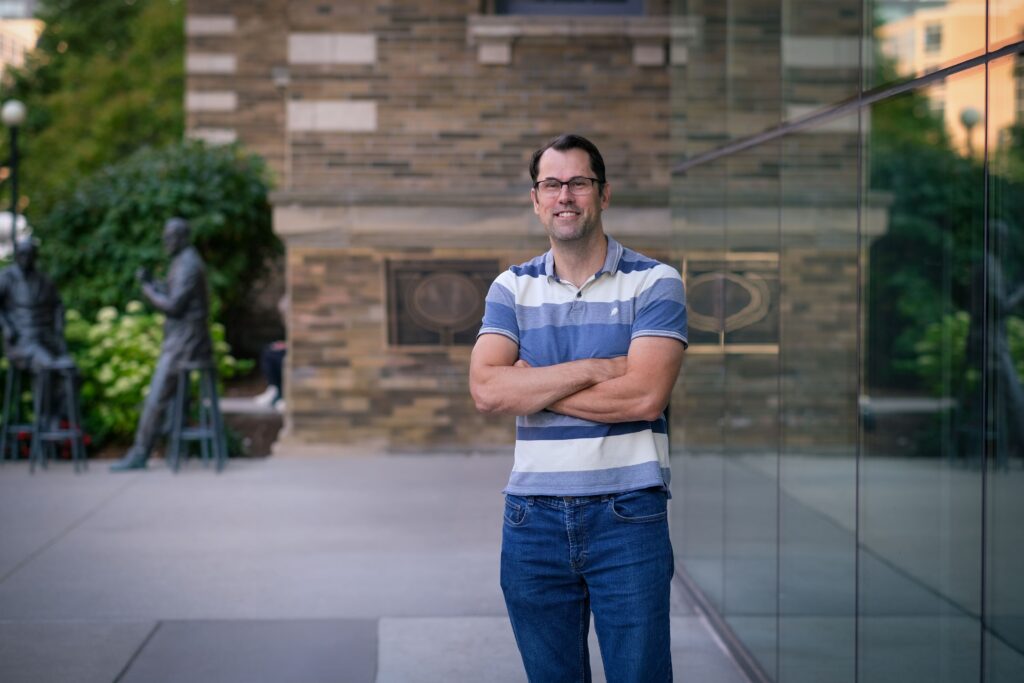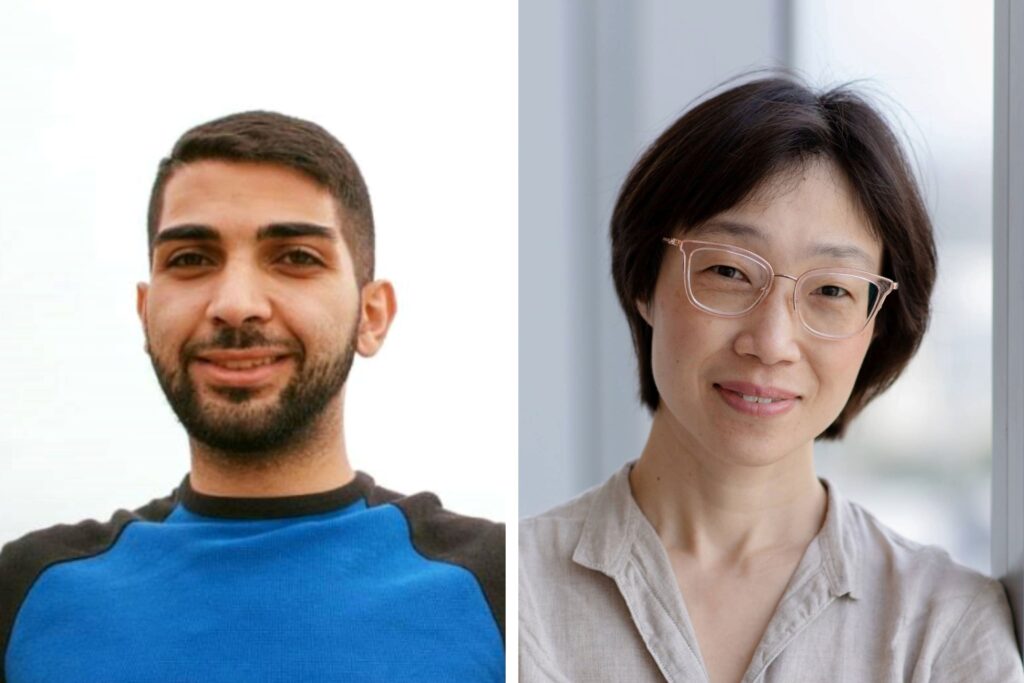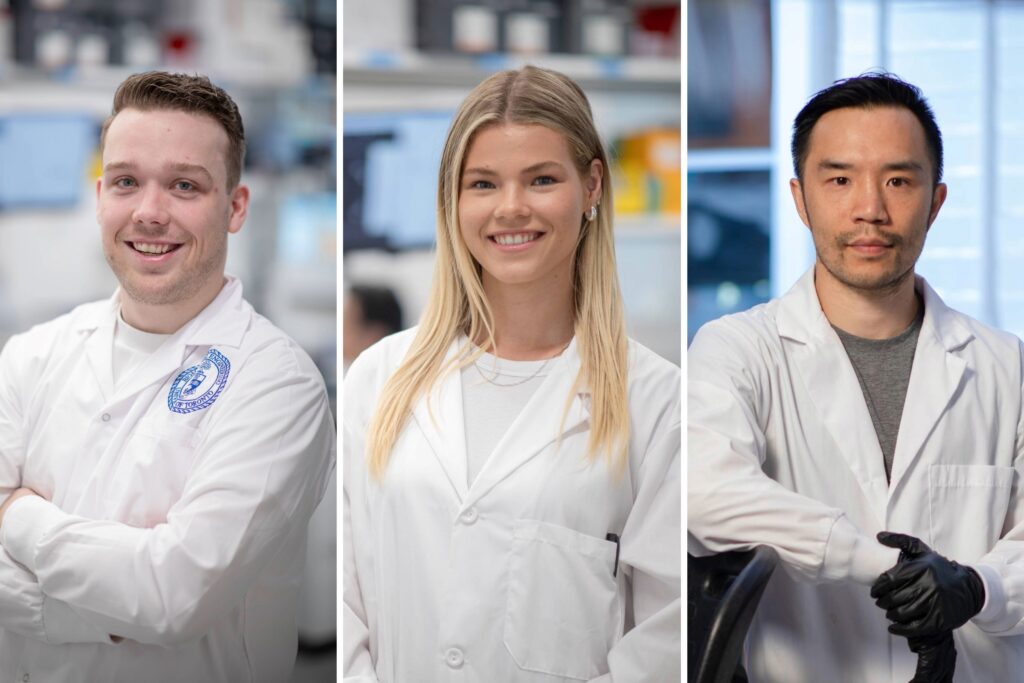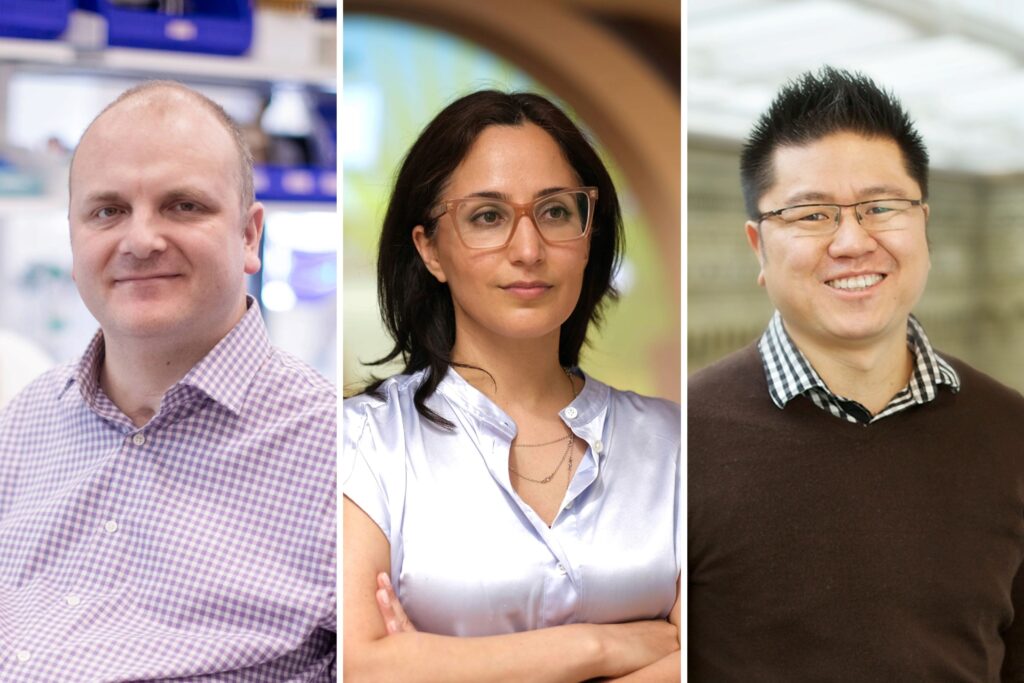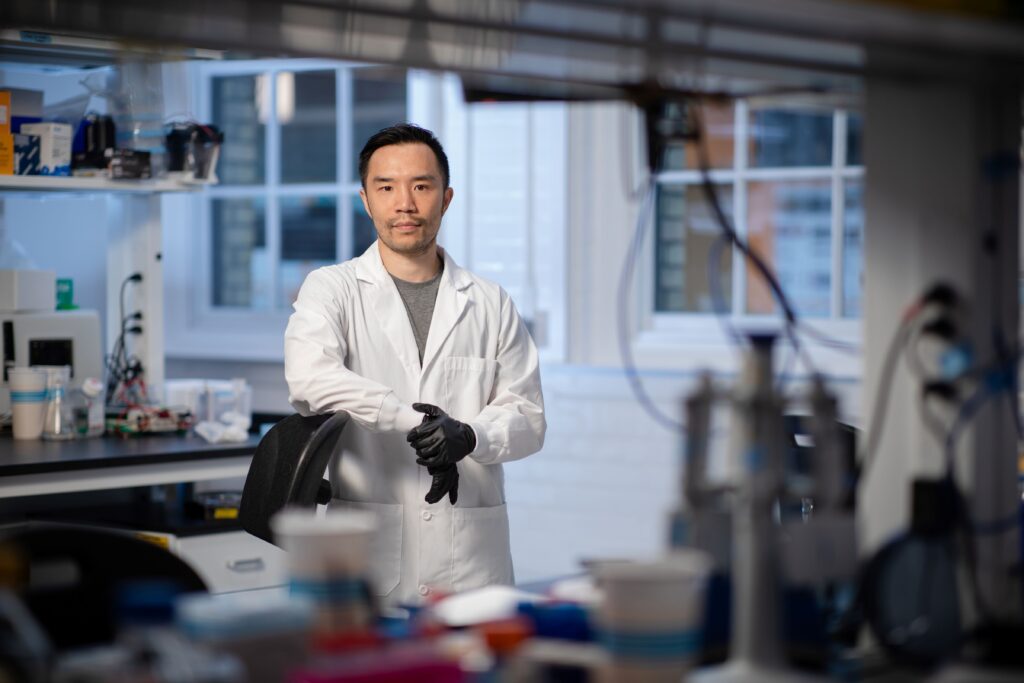Molecular Engineering
Molecular engineering aims to advance disease detection, customize drug delivery and improve health-care outcomes with faster and more precise technologies and systems.
Quick Navigation
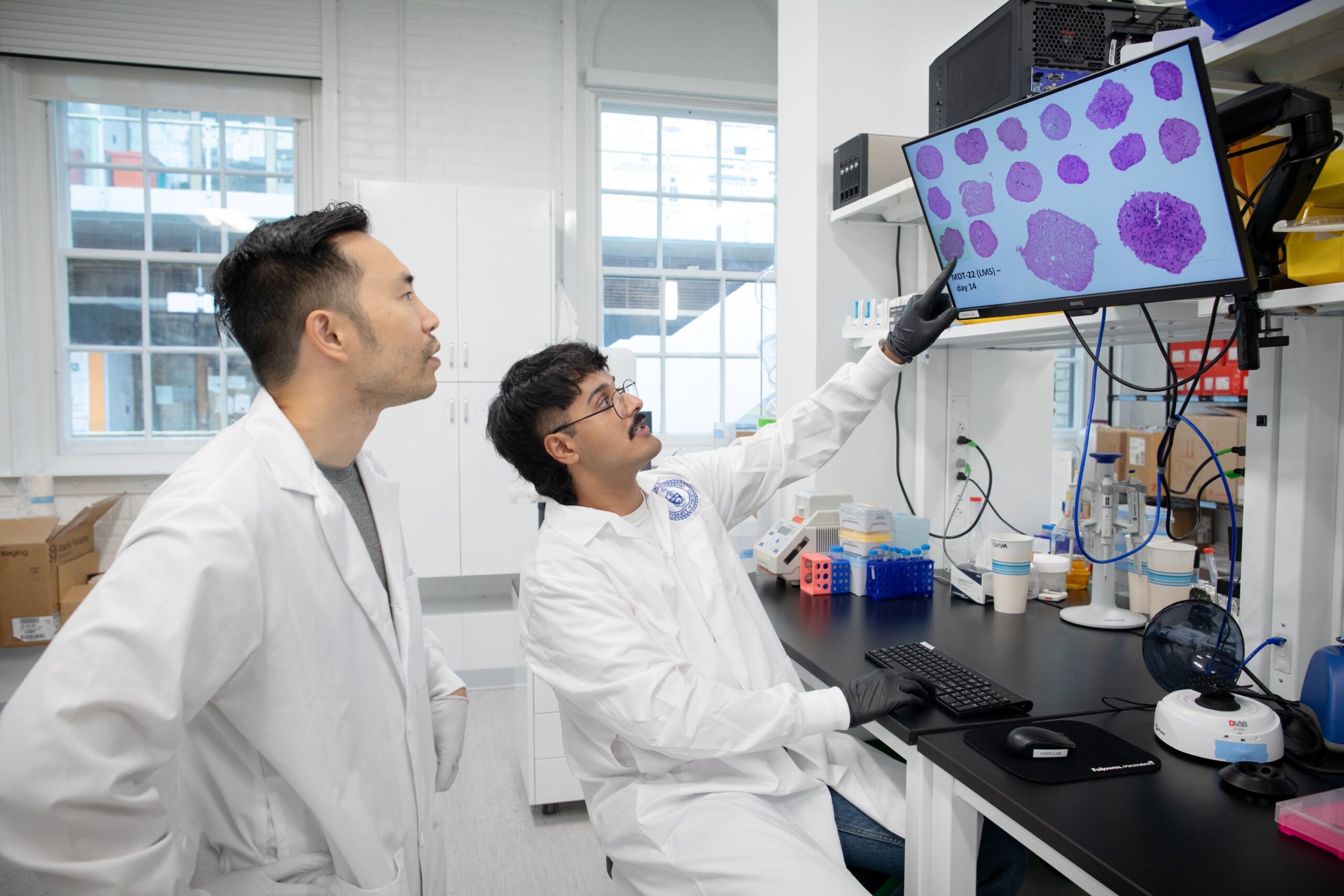
Nanotechnology
Using biological building blocks for treatment and diagnosis
Professor Leo Chou is pioneering the future of molecular science to tackle some of the toughest challenges in healthcare. Nature has perfected the art of creating molecular machines—tiny, intricate tools that power life itself. Inspired by these natural wonders, the Chou lab is working to design and build custom molecular machines that can match—and even surpass—Nature’s creations.
By combining DNA nanotechnology with cutting-edge techniques in chemistry, protein engineering, and computer modeling, they are crafting molecular systems that can operate with precision and durability inside and outside of living cells.
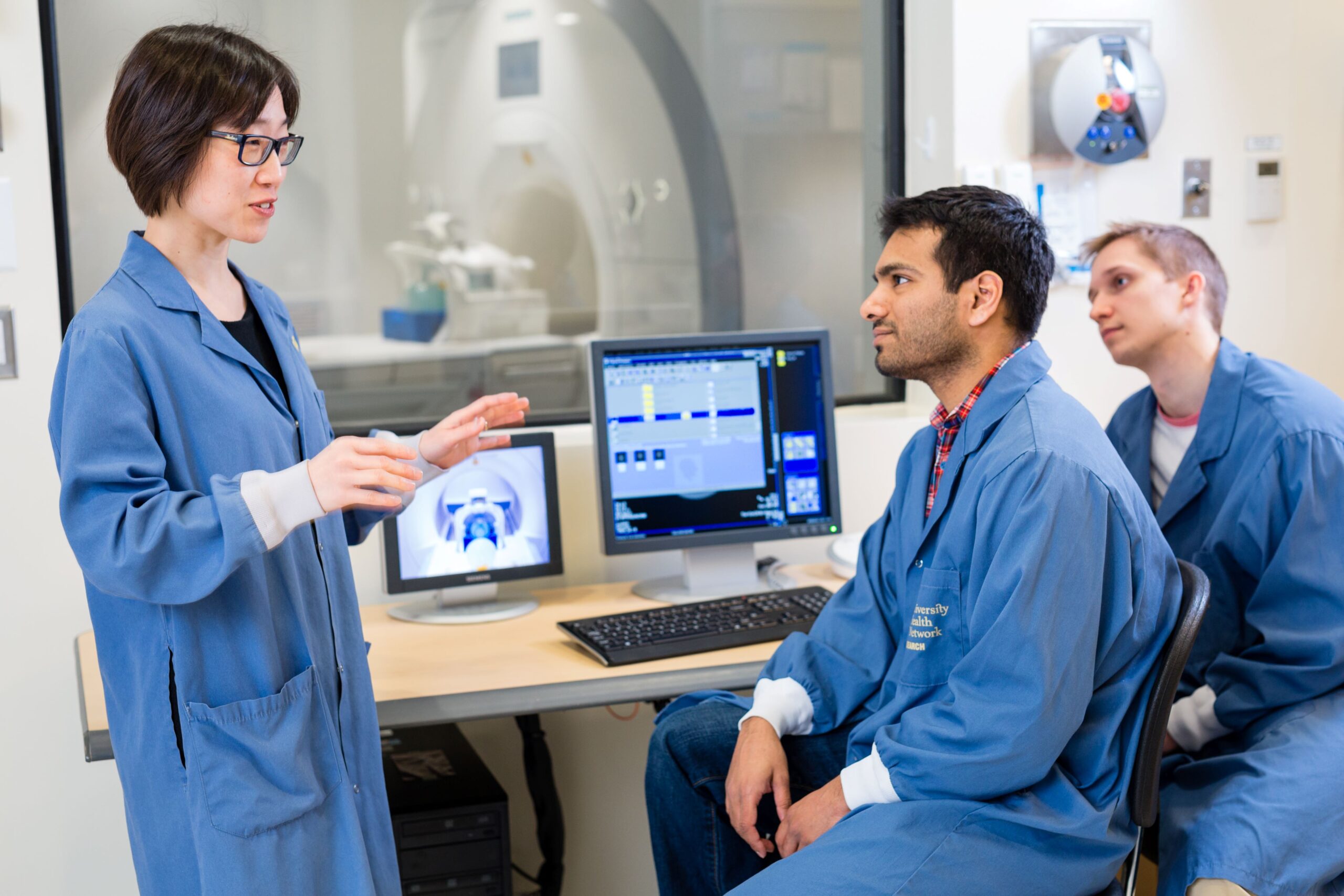
Molecular Imaging
Smarter scans for earlier cancer detection
Professor Hai-Ling Margaret Cheng was working as an electrical engineer in the aerospace and defense industry when she realized the signal-processing techniques she was using could also enhance magnetic resonance imaging (MRI) scans.
Today, her team is dedicated to improving MRI technology. Specifically, the Cheng Lab looks at ways to modify and enhance chemicals that give off a strong magnetic resonance signal, known as contrast agents, to accentuate visual accuracy of specific tissues and organs. Her lab is also developing novel, rapid imaging approaches to give us information about tissue physiology and functional dynamics.
Her developments in this area have proven promising in earlier cancer detection and stem cell observations for human tissue repair.
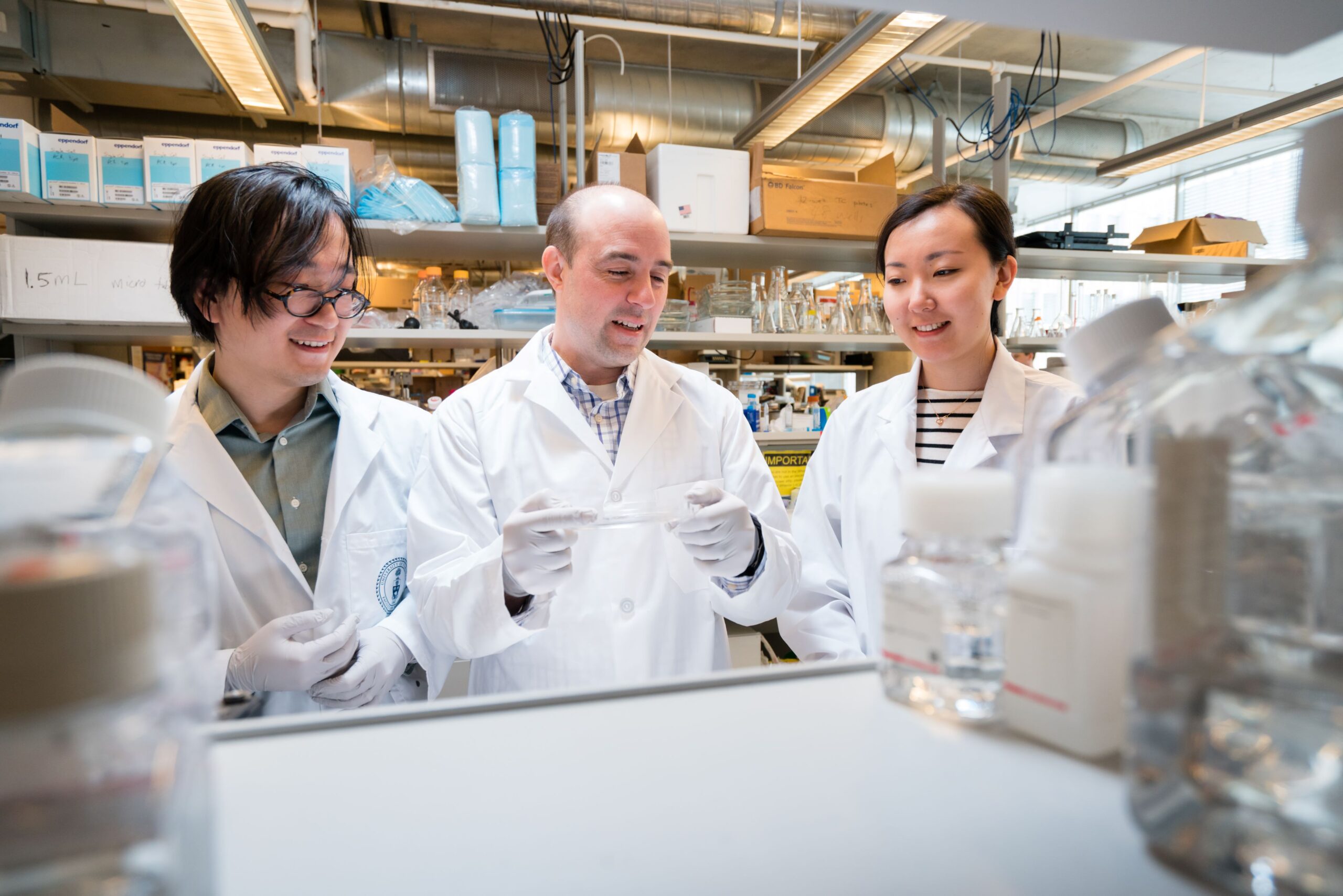
Systems Biology
Shrinking the lab—mini diagnostic tools for rapid, on-site results
Professor Aaron Wheeler is taking the lab to you.
His team builds miniature labs using digital microfluidics — a liquid-handling technology that can analyze tiny drops of chemical and biological fluids on site. Using electrostatic forces, their lab-on-a-chip device can manipulate these samples and probe them with built-in sensors for rapid analysis, all on something the size of a credit card.
The technology aims to allow advanced diagnostic tests to be performed at a patient’s bedside or in remote places around the world to give accurate results in less time.
Read more news about molecular engineering
BME Research in Action – Professor Leo Chou
At the Institute of Biomedical Engineering (BME) at the University of Toronto, Professor Leo Chou is developing self-assembling molecular technologies to improve disease diagnostics, therapy, and personalized medicine. His team combines DNA nanotechnology, protein engineering, and computational design to create programmable molecular systems with potential applications in cancer immunotherapy and cellular diagnostics.
Professor Jonathan Rocheleau Awarded CIHR Grant to Investigate Key Mechanism in Diabetes Treatment
Professor Jonathan Rocheleau, a researcher at the University Health Network (UHN) and the Institute of Biomedical Engineering (BME), has received a $100,000 grant from the Canadian Institutes of Health Research (CIHR) to explore a crucial aspect of insulin release—a process essential for maintaining healthy blood sugar levels.
New study points to leg muscle as a potential early warning system for heart failure
Researchers at the University of Toronto’s Institute of Biomedical Engineering (BME) have found that studying blood flow in leg muscles may help detect cardiovascular disease earlier compared to standardized tests, opening the door to earlier treatment and better outcomes.
Engineering synthetic immune complexes using DNA nanotechnology
Researchers from the Institute of Biomedical Engineering (BME) at the University of Toronto have developed a new method to precisely control the structure and function of immune complexes (ICs) using DNA origami.
Three U of T biomedical engineers awarded Canada Research Chairs for innovations in synthetic biology, neurodiversity health, and nanobioengineering
Three faculty members at the University of Toronto’s Institute of Biomedical Engineering (BME) have been awarded Canada Research Chairs (CRCs) by the Canadian Institutes of Health Research (CIHR) and the Natural Sciences and Engineering Research Council (NSERC).
Professor Leo Chou awarded $130,000 to advance cancer vaccine research
Professor Leo Chou has been awarded $130,000 in funding from The Cancer Research Society (CRS) to propel forward an ambitious project aiming to boost the effectiveness of cancer vaccines. This award places him among 100 distinguished Canadian recipients this year, each selected to push boundaries in cancer research with innovative solutions.
